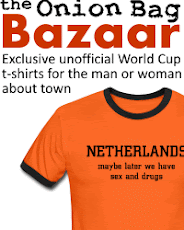The penultimate part of our occasional series looking at the Presidents of FIFA throughout history.
The global game
In the early 1970's, Brazil were the true kings of world football. Crowned champions for a record third time and synonymous with the silky skills of players like Pele, Jairzinho and Carlos Alberto, the Brazilians were the embodiment of everything that was good in the game. Brazil was also about to provide FIFA with its seventh President, Joao Havelange.
In 1974, Stanley Rous' leadership of football's world governing body came to an end. He'd overseen a modest expansion of the game in many countries around the world, but some of them now wanted recognition for the way they'd developed the game to a higher standard.
Under Rous, only European and South American teams were guaranteed a place at the 1970 World Cup Finals. He remained largely unconvinced by the quality of the football being played in Africa and Asia, leaving its member federations to qualify via a series of one-sided play-offs against stronger teams.
With a growing sense of frustration, many of the younger footballing nations turned to Joao Havelange for support and it was here that Havelange, head of the Brazilian football federation at the time, saw an opportunity to force a change for the better. In the two years leading up to the 1974 Presidential election, he actively canvassed for support by making 86 foreign trips to countries far and wide, and with money from the Brazilian FA, 36 African countries were offered an all expenses paid trip for two representatives to attend the all-important FIFA conference where the next President would be elected.
His efforts paid off - just. When the votes were counted on the day of the election, Havelange was seen to have beaten Rous by a narrow margin. With the backing of Africa and Asia, the Brazilian had taken control of FIFA and immediately set about the task of repaying them for their support. By the time of the 1982 World Cup, Africa would have two representatives and Asia one, but progress in the meantime would be frustratingly slow.
One area where Havelange clearly had greater success was in the embracing of commercial partners to create a better economic foundation for FIFA. Far more money was needed to improve the development of the game around the world, and Havelange knew how to get it. By engaging in multi-million dollar sponsorship deals with companies like Adidas (who supplied the match balls for every World Cup from 1970 onwards), Havelange was able to give FIFA the firm financial footing it required.
Yet for all that, Joao Havelange couldn't help but court controversy from time to time When a volcanic eruption in Colombia caused the deaths of 21,000 people in 1985, it effectively ended the country's chances of hosting the World Cup the following year. A replacement host therefore had to be found at short notice.
The United States and Canada submitted their bids for the 1986 World Cup, but Havelange instead sent a team of inspectors to Mexico. Later, when the presentations of all three countries were made for the hosting rights, Havelange was said to have asked FIFA's delegates "Do you accept the word of the inspection team?" before calling an end to the matter. The bids from Canada and the United States weren't even considered, and Mexico were duly instated as hosts for the 1986 World Cup.
In more recent times, Joao Havelange has been accused of financial irregularities involving FIFA's former marketing partner, ISL, and even made accusations of his own this year that the World Cups of 1966 and 1974 were fixed so that the hosts could win. Yet by the 1990's, it was matters on the pitch that were proving just as troubling for the Brazilian.
The Finals of the 1990 and 1994 World Cups had ended with no goals scored from open play, and though there was some undeniably great football to be seen in both tournaments, it was clear that the sport was going through a period of transformation, with changes both good and bad taking place.
Once again it was time for FIFA to look to someone with fresh ideas and a new approach to ensure football remained on course for a secure future. Just before the start of the 1998 World Cup finals, Sepp Blatter was elected as the man to carry out that task, thereby ending the twenty-four year reign of Jean-Marie Faustin Goedefroid de Havelange.
Blatter's predecessor had achieved much during this time. He'd seen the expansion of the World Cup Finals from sixteen teams to thirty-two, the arrival of fifty new member nations (including China who re-joined after a 25-year absence) and he'd created new World Cups for women players, junior players and the indoor version of the game.
All in all then, Joao Havelange will be looked back on as a President who turned football into the sport we know today. New opportunities were created for the less fortunate players, clubs and countries of the world, all underwritten by the finances he helped to generate.
Going into a new century, football had well and truly arrived in the modern era, and one that was undoubtedly brought about by the clever Brazilian. Whether it could retain its appeal, however, would lie in the hands of a man from Switzerland.
Wednesday, October 29, 2008
All the Presidential Men (Part 7)
Posted by Chris O
Labels: FIFA, João Havelange, president, Sepp Blatter
Subscribe to: Post Comments (Atom)









0 comments: